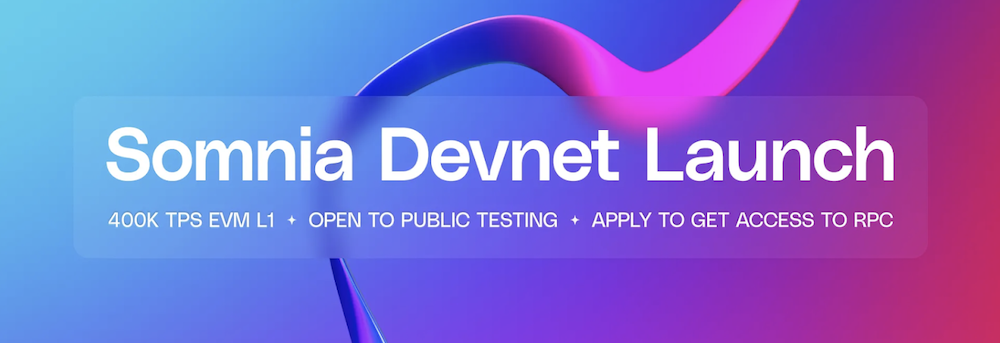Somnia has launched its Developer Network (Devnet), providing developers and Web3 users access to its high-performance blockchain technology. Positioned as the “dream computer” for a fully on-chain world, Somnia is designed to support reactive, mass-consumer applications such as games, decentralized finance (DeFi), social finance (SocialFi), and metaverse projects.
Somnia Devnet Innovation and Performance Metrics
In internal testing, Somnia’s Devnet has demonstrated the ability to process a staggering 400,000 transactions per second (TPS), achieving transaction finality in under a second. On top of that, transaction costs remain below one cent, even under high network loads.
Somnia’s performance is due to innovations in execution, database, networking and consensus. The platform’s database has a read-and-write time of between 15 to 100 nanoseconds, reducing latency significantly. The advanced networking can also transmit 10 to 20 times more data between nodes. Moreover, full EVM compatibility allows developers to use familiar tools and languages and build decentralized applications that require real-time responsiveness.
Furthermore, by allowing instant reactions to on-chain events directly in Solidity, Somnia opens possibilities for fully decentralized applications like interactive games and live event platforms. This capability looks to enhance user experience and broaden the scope of applications that can be effectively deployed on the blockchain.
Developer Support with $10 Million Grant
To build a robust developer ecosystem, Somnia is inviting developers to apply for whitelisting to join its initial developer cohort. Also, the company has announced a $10 million grant program aimed at supporting developers with funding, technical guidance, and go-to-market strategies.
Early infrastructure partners include Ankr, which will provide Remote Procedure Call (RPC) services to enhance network connectivity and reliability. Hemera’s Social Scan will power the block explorer, allowing users to monitor blockchain transactions. Additionally, thirdweb will offer tools for developing EVM-compatible decentralized applications, simplifying the development process.
Public Testing
Somnia’s Devnet will be open for public testing during certain hours, allowing users to interact with decentralized applications such as a decentralized exchange (DEX), NFTs, and games. With this approach, they intend to gather valuable feedback and test the platform’s capabilities in a live environment. Users can request Somnia Test Tokens (STT) through a faucet on the platform to participate in testing.
Finally, developers and users interested in exploring Somnia’s technology can find more information about Devnet access, the grant program, and the whitelisting process on their website. With the launch of its Devnet, Somnia aims to bring more data and functionality on-chain, potentially influencing how decentralized applications develop in the future.
Editor’s note: Written with the assistance of AI – Edited and fact-checked by Jason Newey.
Credit: Source link
